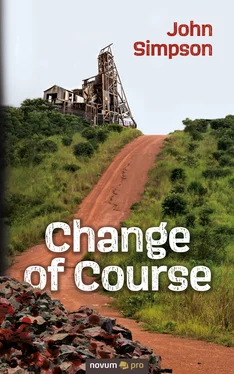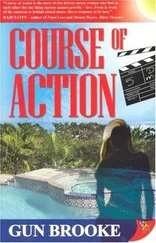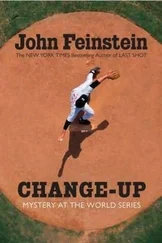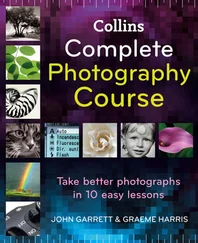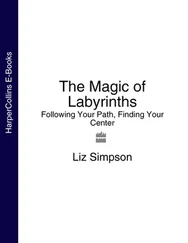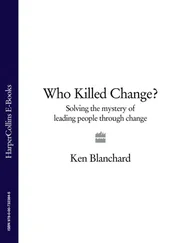‘Nothing,’ I mumbled.
She smiled ruefully and shook her head slowly.
‘All right,’ I said. ‘Everything seemed to suggest that an Angolan had died too: Jim’s body and the car in the river.’ It was as far as I could go.
‘This is my biological father we’re talking about. I wanted him to be more than a bashed-up body. I’ve only just got used to the idea that he existed, let alone died a violent death.’
I grabbed my opportunity. ‘Look, this is hard for both of us, for different reasons. I’m not ready for this yet. Can we ease off for a while – calm down – then I’ll tell you about your father – what he was really like – alive.’
To my relief, she nodded. But I knew we would be back.
Chapter 3
Sophie went through to the kitchen to make some more coffee; hoping, I think, that it would give me time to come up with a more convincing story about her father’s death. Instead, I just sat and stared at the cover of the second notebook. It was identical to thousands of other notebooks except for the label: ‘Angola – Second Contract: Oct 84 –’. The lack of an end-date hinted at unfinished business. My thoughts kept turning to Sophie. She had a right to know about her father but her questions about his death had unsettled me. By inviting her back to my home I’d tacitly agreed to tell her what I knew, or most of it. But there was something about Lodge’s death that worried me profoundly; I had no idea what it was. It was like a splinter: I knew there was something there, but I couldn’t get at it. Did the notebook hold the answer? I didn’t know but I was reluctant to find out. In the end my procrastination earned me a reprieve. Sophie bustled back into the room with a tray of coffees and half a dozen biscuits that she must have ransacked the cupboards to find.
‘Ready to go again?’ she asked.
I nodded uncertainly. ‘You hadn’t quite finished your story.’ I wanted to start the session on safer ground. ‘What is it you do now? For a living, I mean. You’re still in Cambridge?’
‘Yes, I really love it there. After graduating, I stayed on and did a doctorate in social sciences. I really wanted to work in that field, but nothing came up that was quite right, or that paid enough, so I fell back on my first degree, languages, and I’ve been a freelance translator and interpreter for the last seven or eight years.’
‘That sounds interesting. Who makes up most of your clients? Students, immigrants?’
‘No not really, though I do some work for individuals, but I get most of my business from the high-tech companies in the science parks in and around Cambridge, helping them work with international clients and partner businesses; plus, I get involved in acquisitions of foreign companies. I enjoy it – I get to learn the business side of things too. What about you? You obviously still travel.’
‘Yeah, too much I reckon. I’m a project worker with Flourish; it’s a development charity. We focus mainly on Africa and, to a lesser extent, South America and Asia. My area’s mining: I work with artisanal miners.’
‘Artisanal?’ She laughed. ‘Sounds a bit up-market to me, very arts and crafts. You pay a premium for anything labelled “artisanal”. Look at bread.’
I snorted. ‘You’re not even close. Some prefer to call them small-scale miners; they’re subsistence miners really. They work independently, not for a mining company. They’re often illegal. It’s mining at its most basic: hammers, chisels, spades, pans, candles … you name it – bloody lethal.’ I told her about some of the mines I had visited in various African and South American countries. She blanched when I told her that I’d been down mine shafts forty or fifty metres deep without a rope: just bracing my back and feet against opposite sides of the shaft and walking down. She found it hard to believe that miners still use candles for light and that they worked with little or no ventilation.
‘What do they mine?’ she asked.
‘Anything, but often gold – precious stuff.’
‘Greed then. Why does a charity …’
‘It’s not greed,’ I interrupted. ‘It’s subsistence mining. Most of them barely make a living; even with gold. But it’s a sensible thing to mine if you think about it: it’s portable. A gram of gold is worth a significant amount; just over $ 30 at $ 1,000 an ounce. You’d need half a tonne of iron for the same return. I know which I’d rather carry around.’
‘Yes, but what’s wrong with farming? Surely that’s a better option for pure survival?’
‘Well, yes, if the land will grow anything. A lot of miners are, or were, farmers but droughts, floods and other shit like desertification has forced them onto plan B. If you can’t grow your food, you need money to buy it – and that’s where mining comes in. It’s a straight choice: mine or starve. What would you do?’
‘Start digging, I guess. It still doesn’t seem like a typical charity area though – too many environmental issues. It must be a struggle to get funding,’ she said. ‘How many at Flourish work in mining?’
She wasn’t surprised when I told her I was the only one and she couldn’t hide her delight when she learned that we employed more than twenty social scientists as well as numerous specialists in other fields.
‘Where is it you’ve just got back from?’ she asked.
‘Ghana; I was there for six weeks. Some field work – projects, and a bit of networking in Accra. I had some useful meetings with influential figures from government departments and other organisations.’
‘What was the field work?’
‘I’ve been working with one of the big mining companies in Tarkwa, persuading them to work with and help artisanal miners in the area. I also took a fact-finding trip to a place near the Burkina Faso border, to see a real live gold rush. What an eye-opener that was.’
‘How so?’ She was interested.
‘It was so chaotic – a free-for-all – illegal, dangerous and criminally inefficient; an illustration of all that’s bad in artisanal mining. Take for example the mercury. Some of the miners evaporate it off using the same pots they use for cooking!’
‘You’ve got to be kidding. Surely they must know the dangers?’
‘They do, but they ignore them.’
‘Why?’
‘They live from day to day, literally. They focus on what might kill them today not on what might kill them twenty years down the line. If you can’t get through today, there is no twenty years.’
‘That’s really depressing.’ Her face reflected her words.
‘Yes, it is, it’s heart-breaking. Providing the dream of a better future is one of the biggest challenges. Going back to the mercury though; much of it ends up in the rivers, which is where their food chain starts! There’s just so much to do. There are other major problems too – AIDS and the sex trade not the least. I’m currently working on a funding proposal for a project to study the impact of AIDS in artisanal mining communities. But it’ll be hard to make it attractive to the donors. They’re falling over themselves to spend money on farming and microfinance projects, but mining …’
‘Funding,’ she sighed. ‘I had my fair share of frustrations with that too when I was in research. That’s one side of research I don’t miss.’ After a pause she asked, ‘Have you ever been back to Angola? Done any projects there?’
I’d been wondering how long it would take her to steer the conversation back there.
‘No,’ I said. ‘I guess it’s because our partners and donors – for Africa, anyway – focus on English-speaking countries. Ex-Portuguese colonies like Angola and Mozambique don’t appear on our map, nor do any of French-speaking Africa.’
Читать дальше
